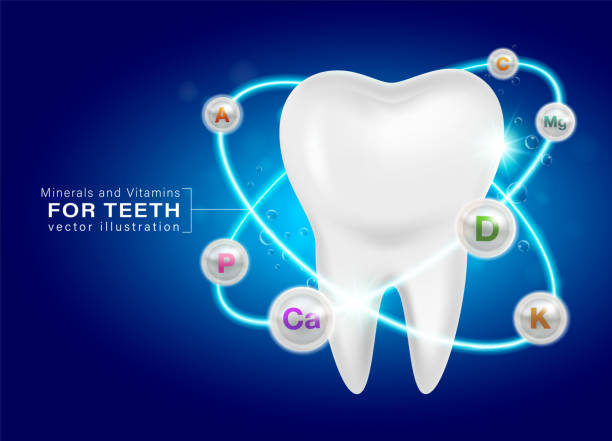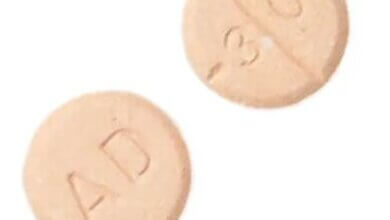
Let’s be honest—when we’re discussing teeth, we’re usually thinking about brushing, flossing, or perhaps avoiding too many sweets. But your diet? That’s what happens to get shoved aside.
And yet, the vitamins and minerals you consume (or don’t consume) on a daily basis make a much larger impact than we understand. If your teeth are sensitive, grayish, or chip too quickly, it might not be your toothpaste. Perhaps it’s your plate.
If you have ever been to the best dental clinic in Nagpur, you might have overheard your dentist discussing nutrition. They are not incorrect. Your body builds and protects your teeth thanks to nutrients you give it. No magic tricks required. Just science and wise choices.
Alright, let’s get to the bottom line. This is how some vitamins and minerals really impact your teeth—and how you can keep your smile in top shape.
Why Vitamins and Minerals Matter to Your Teeth
Your teeth are living things. I know, it sounds crazy, doesn’t it?
But seriously, under that hard enamel, your teeth have nerve tissue, blood, and living cells. Like the rest of your body, they use nutrients to stay healthy, fight off infection, and repair damage.
When your body is low in calcium, your teeth are the first to respond. And not in a good way.
1. Calcium – The Building Block of Your Smile
You’ve probably heard it since you were a child: drink milk for healthy bones and teeth. Surprisingly, that advice still holds up.
Calcium helps create and sustain the hard structure of your teeth. Without calcium, your enamel becomes softened. You may notice:
- Increased sensitivity
- Increased cavities
- Looser jawbone support
Don’t worry if you’re lactose intolerant or simply don’t like milk. You can find calcium in:
- Leafy greens (such as spinach)
- Almonds
- Plant milks that are calcium fortified
- Tofu
And in all fairness, a dental clinic in Nagpur can even prescribe calcium supplements if your diet is deficient—especially for children or the elderly.
2. Vitamin D – Calcium’s Best Friend
Here’s a little-known fact: Your body needs vitamin D in order to absorb calcium properly.
You might be eating the healthiest, calcium-rich diet—it won’t do much good if your vitamin D level is low.
- Vitamin D deficiency has been attributed to:
- Weak teeth
- Slower healing of dental work
- Increased risk for periodontal disease
Sunlight is your best natural resource. 15–20 minutes a day will do, especially in sunnier latitudes like Nagpur. But you can top it up with foods like:
- Fatty fish (salmon, sardines)
- Egg yolks
- Enriched breakfast cereals
And yes, pills are effective—if necessary.
3. Phosphorus – The Hidden Helper
Phosphorus prefers to hide in the background behind calcium, but it is just as vital.
It does the job. It works in conjunction with calcium to make your teeth’s hard tissues harder. Your teeth will demineralize more quickly if you’re deficient in phosphorus.
You can obtain phosphorus from:
- Fish
- Eggs
- Nuts
- Dairy
- Whole grains
Individuals coming to a Nagpur dental clinic with persistent wear on the enamel may be unaware of the fact that they have a low phosphorus level. A quick dietary screening will expose it.
4. Vitamin C – Gums
Now, let’s talk about gums. Because good teeth are not much good if your gums are in trouble.
Vitamin C helps build and repair gum tissue. It’s also important in the fight against inflammation and infection in the mouth.
Deficiencies can result in:
- Swollen gums or bleeding gums
- Loose teeth
- Slowing of healing after cleanings or extractions
What to munch on?
- Oranges, lemons, guavas
- Bell peppers
- Strawberries
- Broccoli
If your gums bleed when you brush, don’t think anything of it. Your Nagpur dental clinic may test your vitamin C levels when you undergo your oral checkup.
5. Magnesium – Balances It All
Magnesium doesn’t get much attention, but it plays an important role in forming and strengthening tooth enamel.
It also operates in tandem with calcium and phosphorus to reinforce and shield teeth.
If you do not have enough magnesium, you may experience:
- Weakened enamel
- Teeth grinding (bruxism)
- Jaw muscle tension
Magnesium sources:
- Dark chocolate
- Avocados
- Whole grains
- Seeds (pumpkin, chia)
Honestly, if you tend to grind your teeth or clench your jaw frequently, magnesium may be doing more than you’re aware of.
6. Vitamin A – Supports Saliva Production
Saliva may be dull—but it’s really quite critical.
It helps rinse your mouth, shields your enamel, and keeps bacteria from hanging around too long. And vitamin A plays a key role in making sure your body produces enough of it.
Without enough saliva, your chances for gum disease and cavities go up.
Food sources:
- Carrots
- Sweet potatoes
- Mangoes
- Eggs
- Liver (if you prefer it that way)
Dry mouth? It’s more than annoying. Get your dentist or nutritionist to check your vitamin A levels.
7. Iron – Keeps Mouth Infections at Bay
Iron assists in transporting oxygen to your body tissues, including oral tissue. If you are iron deficient, you’ll get tired quicker and develop more mouth infections or ulcers.
Be on the lookout for these signs:
- Pale gums
- Mouth sores
- Chronic bad breath
Iron-rich foods:
- Red meat
- Lentils
- Beans
- Spinach
- Raisins
A good dental clinic in Nagpur would never miss the importance of iron in your oral health, particularly in children or pregnant women.
How a Poor Diet Manifests in Your Mouth
If your nutritional levels are out of balance, your mouth begins communicating with you. They may be:
- Cracks or chips in your teeth
- Bleeding or receding gums
- Frequent mouth sores
- Chronic bad breath
- Pain chewing
These aren’t just mouth problems—these are frequently linked to your general health. And yes, they can begin with what you’re consuming regularly.
Do Supplements Work?
Occasionally, yes. But attempt food first.
Your body will make better use of nutrients in real food instead of tablets. But if your doctor or dentist is recommending supplements, particularly after blood tests, do not dismiss it.
In clinics such as a dental clinic in Nagpur, the dentists would themselves work in coordination with dietitians or general practitioners to develop a complete health profile.
What Dentists Really Want You to Know
Here are what dentists won’t explicitly say but are important to know:
- They can just tell that you are facing a vitamin deficiency just by checking your gums and teeth.
- Nutrition is equally important as brushing and flossing.
- One little food change will help your oral health more than changing toothpaste.
- Super oral care is always a combination of routines, never one isolated activity.
Rapid Tips to Give Your Teeth a Helping Hand Through Diet
Protect your smile from the inside out with these tips:
- Munch on fruit and vegetables of many colors daily
- Add healthy fats and proteins for fixing tissue
- Make water flow continuously to keep saliva flowing
- Reduce sweets and packaged food
Get to a trustworthy dental clinic in Nagpur every 6 months for checkups
You don’t have to be flawless. But your teeth are for life—and they can do more than just a brush.
What you eat constructs the smile you bring to the world. Imagine each mouthful as a step in the direction of healthful, strong teeth.
When you sit at the table next, maybe ask yourself: Is this adding or detracting from my smile?
And when you have absolutely no idea where to begin, make an appointment with a well-known dental clinic in Nagpur. One conversation can sometimes take you to find the missing piece.




